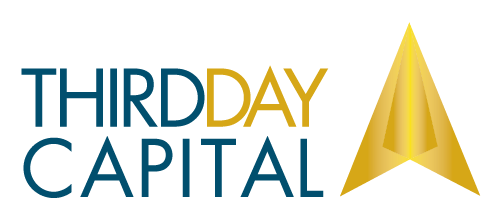Part 2 – The Challenges Implementing an ESG Investment Strategy Using a Catholic World View
In the first part of this series, we looked at the foundational similarities between ESG-focused investment strategies and the Catholic Church’s social justice doctrine, highlighting the broad parallels and framing the ESG approach as an expression of Catholic social justice doctrine. These parallels notwithstanding, we concluded by alluding to the challenges Catholic investors who wish to align their investment portfolios with their faith must confront when implementing an ESG framework.
These challenges range from the inherent disparity among the focal points of the major ESG benchmarks (some focus internally on the company’s activities and its impact on the environment and stakeholders, while others focus externally on risks to the company’s operations arising from things such as climate change), differing ESG definitions (are hydro and nuclear power generation environmentally friendly?), the inconclusive data about whether an ESG approach produces better or worse investment returns over time, and widespread greenwashing by corporations, investment companies and investment professionals who, in order to attract investors, claim to employ ESG criteria in their activities but in reality do not.
While all of these challenges confront all investors wishing to incorporate ESG factors into their decision-making process, for the Catholic investor wishing to align their investment portfolio with their faith, there is an additional and even more challenging dilemma to confront; the opposing viewpoints that ESG and Catholic social justice doctrine have on certain areas of morality, and more specifically, sexual morality. This opposition exists whether the ratings framework employs an internal assessment of a company’s activities and its impact on stakeholders, or an external assessment of the risks that ESG factors pose for the company’s long-term sustainability. In other words, regardless of the ESG framework, there are intrinsic conflicts for the Catholic investor, and they manifest themselves most often within the Social element of ESG.
For example, the most widely-used ESG ratings framework, MSCI, rates companies based on an external assessment of the potential risks that ESG factors pose to the company’s long-term sustainability. Although MSCI considers a company’s internal operations, practices, and policies, these are primarily evaluated through the lens of risk and the degree to which a company’s operations, practices, and policies either contribute to, or mitigate various risks to its long-term sustainability. As such, high ratings within its framework suggest that a company’s long-term risk exposure to various ESG factors is low, either because of the nature of its operations or because of operations, practices, and policies the company has adopted to mitigate those risks. In the MSCI framework, low risk translates into a high ESG rating.
Within its Social assessment, MSCI evaluates a company’s human resources policies, employment practices, talent development, safety and labor standards of both it and its suppliers, all of which are important and aligned, on the surface, with Catholic social justice doctrine. However, underneath the surface, because it rates companies based primarily on the degree to which certain social factors represent material financial risks to the company’s long-term sustainability, MSCI could look favorably on a company policy that reimburses its employees for abortion-related travel expenses when employees must travel to another state to procure one because they work in a state that has banned it. Clearly, a company policy that supports abortion is gravely contrary to Catholic social justice doctrine, but under the MSCI’s framework, because such a company policy could theoretically help the company attract and retain talent, reducing the company’s “Social” risk, it merit a lower risk score and a higher ESG rating.
Likewise, within the Social dimension, MSCI evaluates a company’s products or services from the perspective of financial risk arising from product liability, not from a perspective of whether that company’s products are morally acceptable. In this framework, a company, whose primary product is pornography, could receive a higher ESG rating in the “Social” category because the risks of a product recall would be considered low. Other morally illicit products, such as recreational marijuana or gambling could result in a high Social ESG score for the same reason; neither represent particularly acute product recall risks. On the other hand, a grocery store could theoretically receive a lower ESG rating because of a higher perceived risk of having to issue periodic recalls on its produce.
Moreover, in this framework, the periodic and prominent display of gender-confusing clothing would have no ill effect on its ESG rating, despite the fact that doing so is objectively morally harmful. Nor would a company’s support for the so-called “Marriage Equality” Act, or prominent sponsorships of gay pride parades, both of which conflict with the Catholic perspective on human sexuality and its insightful grasp of the human being as a complementary creation of God.
These conflicts are not idiosyncratic to the MSCI framework; virtually every other framework results in similar conflicts because the conflicts arise not out of the framework itself but out of the misguided and unfortunate perspective that our modern society has when it comes to social justice and morality. We focused on MSCI’s framework because it serves as a useful example of how such conflicts, or rather mutual exclusivity, exist and because, as the world’s most widely-used ratings framework, the MSCI investment indices, which are based on the ratings framework, are the most widely used benchmarks against which investment managers evaluate their investment performance. This in turn, to a large degree, drives the investment decisions that investment managers make, influencing them to prioritize similar criteria when implementing their own ESG approach. The ratings systems are the foundation upon which the vast majority of ESG-related investment decisions are made, and, as ESG grows in popularity, for a larger amount of investment assets.
For the Catholic investor, the typical ESG approach, and the funds and investment strategies that follow it, are morally questionable, if not outright unacceptable. With that said, we realize that eliminating a standard ESG approach from consideration doesn’t in fact provide a solution for the Catholic investor wishing to align their portfolio with their faith. Which is why, in our next piece, we’ll look at how Catholic investors can align their portfolio with their faith, drawing on some guidelines from the U.S. Conference of Catholic Bishops, investor resources, and a number of Catholic values funds.
In the meantime, if you have comments or thoughts, please share them here. And of course, if you have questions, feel free to reach out. We’re always happy to help.


